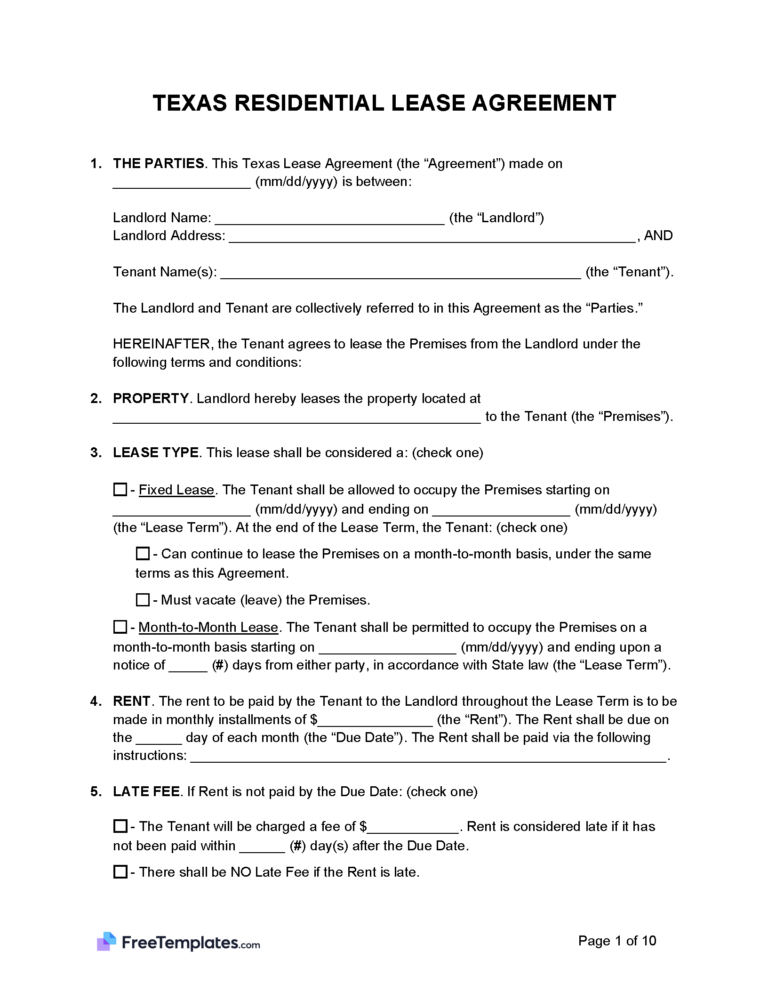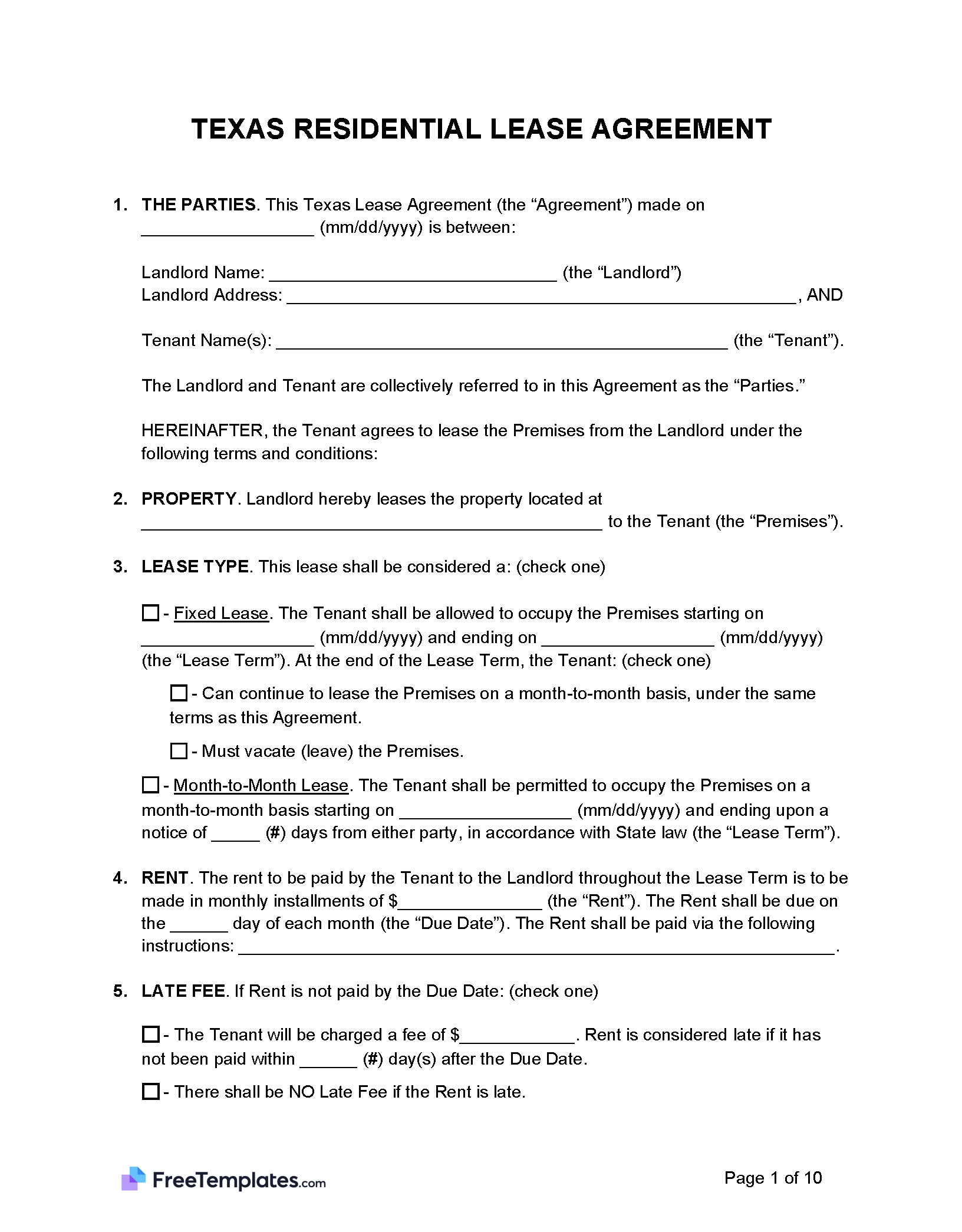By Type (6)
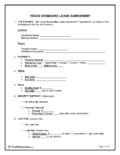 Standard Lease Agreement – A typical lease where a renter agrees to pay a landlord for the right to use their residential property. Standard Lease Agreement – A typical lease where a renter agrees to pay a landlord for the right to use their residential property.
|
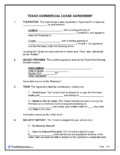 Commercial Lease Agreement – A lease in which a business agrees to pay a landlord for the right to use its commercial property for retail, industrial, or office purposes. Commercial Lease Agreement – A lease in which a business agrees to pay a landlord for the right to use its commercial property for retail, industrial, or office purposes.
|
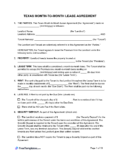 Month-to-Month Lease Agreement – A document that allows for no specific end date and remains active until the tenant or landlord terminates the lease. Month-to-Month Lease Agreement – A document that allows for no specific end date and remains active until the tenant or landlord terminates the lease.
|
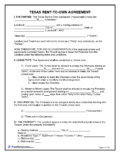 Rent-to-Own Agreement – An agreement between a tenant and landlord in which the renter can purchase the property under specific circumstances. Rent-to-Own Agreement – An agreement between a tenant and landlord in which the renter can purchase the property under specific circumstances.
|
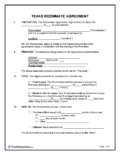 Roommate Agreement – A legal document used to discuss the responsibilities of two people living on the same property and sharing a common space. Roommate Agreement – A legal document used to discuss the responsibilities of two people living on the same property and sharing a common space.
|
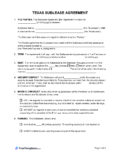 Sublease Agreement – A contract between the tenant of the property and a subtenant in which the landlord approves the lease of their space. Sublease Agreement – A contract between the tenant of the property and a subtenant in which the landlord approves the lease of their space.
|
Disclosures (7)
Lead-Based Paint Disclosure – For any property built before 1978, the landlord must disclose the lead paint document and have the tenant sign it. EPA/HUD Fact Sheet
Landlord’s Contact Details – In Texas, the landlord must provide the tenant with the name and address of the property owner and/or the property manager. § 92.201
100-Year Flood Plain – The landlord must disclose whether the rental property is located in a 100-Year Flood Plain area. § 92.0135
Parking and Towing Rules – The landlord is responsible for familiarizing the tenant with the parking rules in any multi-unit property. The tenant must sign the agreement acknowledging they are acquainted with the parking and towing policies. § 92.0131
Tenant’s Remedies – If the unit is in need of repair then the tenant must notify the landlord. The landlord then has 7 days to start repair or assignment of a repair. If the landlord fails to repair the unit, the tenant may fix the issue themselves and charge the landlord by deducting from the monthly rent or terminate the lease agreement. § 92.056(g)
Special Conditions to Cancel Agreement – In the lease agreement, a disclosure must be included to terminate a lease in an extreme occurrence. Under special circumstances, tenants have “statutory rights to terminate the lease early in certain situations involving family violence or a military deployment or transfer.” § 92.016(f)
Security Deposit
Maximum Amount – There is no limit on the amount that a landlord can charge a tenant for a security deposit in Texas.
Collecting Interest – There is no mention of collecting interest on security deposits in the state of Texas.
Returning to Tenant – The landlord is required to return the security deposit to the tenant within 30 days of the lease’s end. § 92.103
- Note – The departing tenant must provide the landlord with a forwarding address to receive their security deposit. However, if the tenant does not provide a forwarding address, then they do not forgo the security deposit funds. § 92.107
Landlord Access
General Access – In Texas, There are no specific restrictions on a landlord’s entry into a tenant’s unit without notification.
Emergency Access – A landlord has the right to enter their rented property in the case of an emergency or repair. The Tenants Rights Handbook (page 6)
Paying Rent
Grace Period – There is a 2-day grace period for late payment in the state of Texas. After the grace period, the landlord may charge a reasonable late fee, and it must be written in the lease agreement. § 92.019(a)
Maximum Late Fee – If the rental property has 5 or more units, the maximum late fee a tenant may be charged is 10%. If it has 4 or fewer units, the maximum late fee is 12%. § 92.019(a-1)(1)
Returned Checks (NSF) – Writing a bad rent check to a landlord in the state of Texas may result in a maximum fee of $30. (Business and Commerce Code, §3.506(a))
Reasons for Eviction (4)
Landlord Repairs – The landlord shall be informed of any repairs to the unit that may affect the tenant’s health or safety. (§ 92.052)
Lockouts – A landlord is prohibited from locking a tenant out of the rental property unless they have a judicial grant or a legitimate cause and follow state law. (§ 92.0081(b))
Non-Compliance – If a tenant fails to pay rent or breaches the lease agreement, they may be evicted after they have been served a 3-day notice to quit or compy.
Non-Payment of Rent – A tenant who fails to pay rent on time may be evicted from the rental property. The tenant may receive a three-day notice to quit or comply. (§ 24.005)
